Leadership in unprecedented times
Launched in April 2020 in response to the tumult of the global pandemic, CJBS Perspectives: Leadership in Unprecedented Times is a video series featuring globally prominent business leaders, discussing timely and interesting business topics and themes, as well as a view on how they, and their organisations have coped, and even thrived, in challenging times.
Our speakers have shared inspiring stories of entrepreneurship and innovation, problem-solving, the challenges of climate change and adaptability during crisis. Covering a wide range of subjects, from biofuel and building a sustainable future, to workplace occupational health and wellbeing. From the Beirut port explosion in Lebanon, to inclusive leadership, to the importance of equality and diversity. And from the wonders of fusion energy, to digital transformation in business, to reflecting on 30 years since the establishment of the stock exchanges in China. CJBS Perspectives presents crucial insights and unique perspectives on the risks, strategies, and opportunities in a diversity of fields.
Interviews in the third series
Alison Brittain
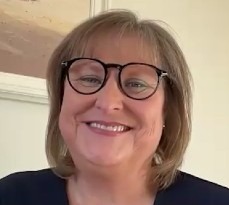
30 years on: From Cambridge Judge to the Premier League – Alison Brittain, Chair of the Premier League, Cambridge MBA 1994 alumna and Cambridge Judge Business School Advisory Board member is interviewed by Professor Gishan Dissanaike, Incoming Dean of Cambridge Judge Business School.
Alison Brittain reflects on her triple jump career journey – from banking to hospitality to sport – and some of her most transformational moments, including studying for her MBA at Cambridge Judge.
Wendy Williams CBE
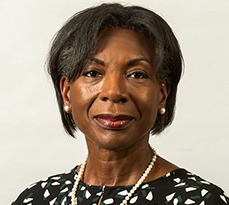
“If there is an atmosphere of trust in an organisation and everyone feels they can speak up, then you get a diverse range of views, and that’s where the magic happens.”
Wendy Williams CBE, HM Inspector of Constabulary and Fire & Rescue Services, author of the independent Windrush Lessons Learned Review and recently appointed Cambridge Judge Business School Advisory Board member, reflects on the review’s findings and her thoughts on leadership lessons learned.
Eben Upton
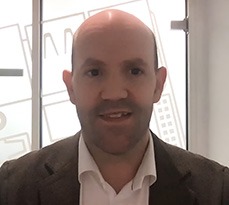
Eben Upton, co-founder of Raspberry Pi and Executive MBA 2009 alumnus at Cambridge Judge Business School, is surprised by how the device has freed up “thousands, if not tens of thousands” of engineer-hours to do more useful tasks than build hardware platforms.
Eben is interviewed by Khaled Soufani, Management Practice Professor of Financial Economics & Policy, and Director of the Cambridge Executive MBA Programme, about his proudest successes over the last decade and what the future holds for Raspberry Pi.
Interviews in the second series
Greg Nance

“Keep showing up, take the leap, and great things happen” says ultra marathon runner Greg Nance, Chief Endurance Officer of Run Far Foundation and MPhil in Management 2011 alumnus at Cambridge Judge Business School.
Greg is interviewed by Professor Mark de Rond about his epic 3,156-mile, 84-day long Run Across America to support a nationwide movement for youth mental health with the Run Far Foundation, and his successes born out of adversity.
Hedwige Nuyens

The EU’s Women on Boards Directive is not just about women, says Hedwige Nuyens, Managing Director of the International Banking Federation and Chair of European Women on Boards.
In an interview with Professor Simon Taylor, Hedwige explains that companies must have an objective and be able to explain why the person they are nominating is the best candidate, regardless of gender or background.
Timo Boldt

“B Corp is the floor, not the ceiling of our ambition” says Timo Boldt, Founder and CEO of Gousto and Cambridge Judge Business School Executive MBA 2014 alum.
As Gousto celebrates its 10-year anniversary, Timo is interviewed by Dr Kamiar Mohaddes, Associate Professor in Economics & Policy at Cambridge Judge Business School, as he reflects on the last decade and explores what the future might hold.
Bina Mehta
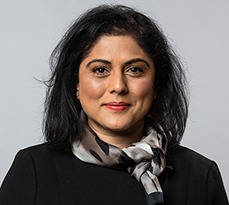
“We are moving from not just the ‘why’ we do business but also to the ‘how’ we do business, and I think the how is just as important as the why” says Bina Mehta.
Bina Mehta, Chair of KPMG UK and Fellow in Entrepreneurship at Cambridge Judge Business School, is interviewed by Professor Mauro Guillén, Dean of Cambridge Judge Business School, as she reflects on her 30-year career journey at KPMG, and how the expectations of the role of business in society has changed during this time.
Sunita Narain
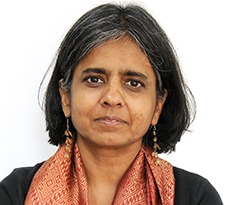
“Where we have gone wrong is really the understanding that environment is not about tech, it is about politics – and the politics is about inclusion, the politics is about equality, and the politics is about humanity”, says Sunita Narain.
Sunita Narain, Director General of the Centre for Science and Environment in New Delhi urges the upcoming 27th United Nations Climate Change conference in Egypt (COP27) to focus on creating a system of compensating for environmental damage in poorer countries.
Amelia Dunlop
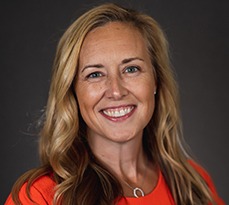
Finding love and worth at work – Amelia Dunlop, CEO at Deloitte Digital, bestselling author and Cambridge Judge Business School alumna (MBA 2003), shares her advice on the ‘worthiness gap’.
Amelia discussed a combination of personal and professional events in a recent CJBS Perspectives video discussion on Leadership in Unprecedented Times, hosted by Dr Thomas Roulet, Associate Professor in Organisation Theory and Deputy Director of the MBA Programme at Cambridge Judge.
Professor Dasgupta and Dr Cavelier
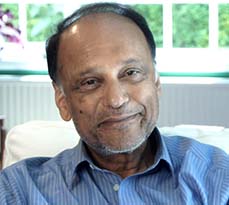
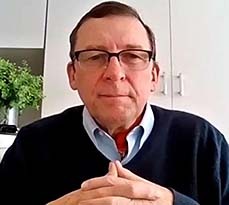
Society is currently going through a “bottleneck” in addressing climate change that nature-based solutions and new international institutions could help solve, agree Professor Dasgupta and Dr Cavelier.
Professor Dasgupta, who earlier this year headed a major report for the UK government entitled The Economics of Biodiversity: The Dasgupta Review and Dr Jaime Cavelier, Vice President of Strategic Partnerships for the International Conservation Caucus Foundation (ICCF), were interviewed by Professor Jennifer Howard-Grenville just before the COP26 climate change conference in Glasgow.
Watch the interview with Professor Sir Partha Dasgupta and Dr Jaime Cavelier
Professor Muhammad Yunus
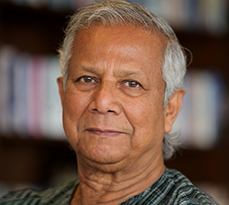
Professor Muhammad Yunus, who won a Nobel Prize for pioneering microcredit in Bangladesh, tells the CJBS Perspectives video series on leadership about how he was inspired to provide financial services to the excluded.
Professor Muhammad Yunus, says he was motivated by a belief that traditional banks were doing everything backwards – including lending money only to people who already had money – so he decided to pursue an alternative path.
Robin L Washington
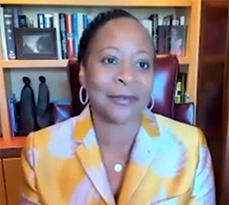
The pandemic has created greater empathy and understanding among business leaders to tackle society’s big challenges, says Robin L Washington.
People traditionally had strict walls separating their work and home lives, but seeing the meshing of these worlds through computer screens (including children and pets in the background) has created a “level of vulnerability” and illustrated how much everyone has in common.
Sir Mene Pangalos
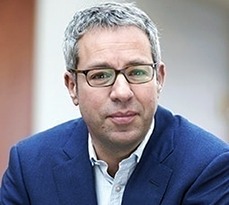
What’s been exceptional about the pandemic, is the collaboration and partnership between so many different groups, says Sir Mene Pangalos.
Sir Mene Pangalos of AstraZeneca, in a Cambridge Judge interview, urges continuation of the ‘exceptional’ collaboration between industry, academia, government and regulators that led to rapid development of COVID-19 vaccines.
Interviews in the first series
Christoph Loch

Leaders facing tough times can draw on a three-step plan, says Dean Christoph Loch.
Leaders of organisations facing big challenges such as the coronavirus crisis can follow a three-step route to stabilise, examine and move their organisations forward.
Lord Browne

As an act of nature, coronavirus may make people change climate change behaviour, says Lord Browne.
The fact that the COVID-19 (coronavirus) pandemic stems from nature may prompt people to put more emphasis on changing behaviour to tackle climate change.
Professor Dame Carol Black

The coronavirus crisis provides ‘unique opportunity’ to develop a broader focus on health and wellbeing in the workplace, says Professor Dame Carol Black.
The Working for a Healthier Tomorrow report was an important step in acknowledging that stress, anxiety and depression are “very powerful” factors in not only absenteeism but the inability to work to one’s full capacity.
Lord Karan Bilimoria
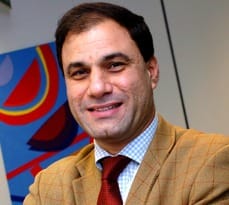
Universities will propel the country forward after the pandemic, says Lord Karan Bilimoria.
The innovation and creativity of the United Kingdom as reflected in its universities will propel the country forward despite the current coronavirus pandemic.
Karl W Feilder
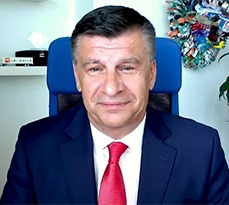
There’s a need for a better bridge between academia and the industry, says Karl W Feilder.
People like to go in their silos and stay there. We need the synergy and synthesis of having all the disciplines in one room to come up with real brilliance.
Wang Boming
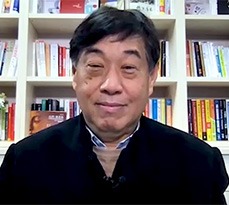
Stock exchanges have contributed to a transformation of the Chinese economy, says Wang Boming.
State-owned enterprises comprised 90% of Chinese businesses in the 1980s but that has changed dramatically in the past three decades.
Hanneke Smits
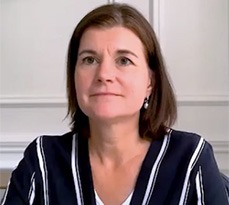
Diversity in the asset management industry improves perspective and decision making says Hanneke Smits.
Progress is already being made to diversify the fund management industry, but it will take some time for women recruited into the pipeline to rise to the very top levels.
Gavin Patterson
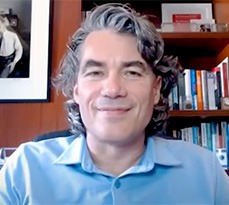
Companies need to accelerate digital transformation in emerging from pandemic crisis, says Gavin Patterson.
Digital transformation is accelerating during this period, and companies that don’t have a digital transformation strategy will find themselves at a disadvantage.
Dr Nasser Saidi
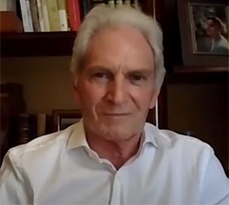
Protests will continue and accelerate until we get big changes. This is a moment of transformation, says Dr Nasser Saidi.
What Lebanon needs is a deep political, economic, fiscal, and monetary reform, and a new government to rebuild the country. We need to have reforms now, otherwise we’ll have a failed state.
Dr David Kingham
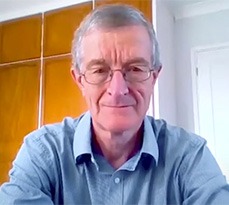
Dr David Kingham believes that fusion energy can contribute to the world’s energy supply while helping to decarbonise the planet.
The scale-up challenge to make a real difference is very great, but if we get our development technology right it’s a very attractive technology for the future.


